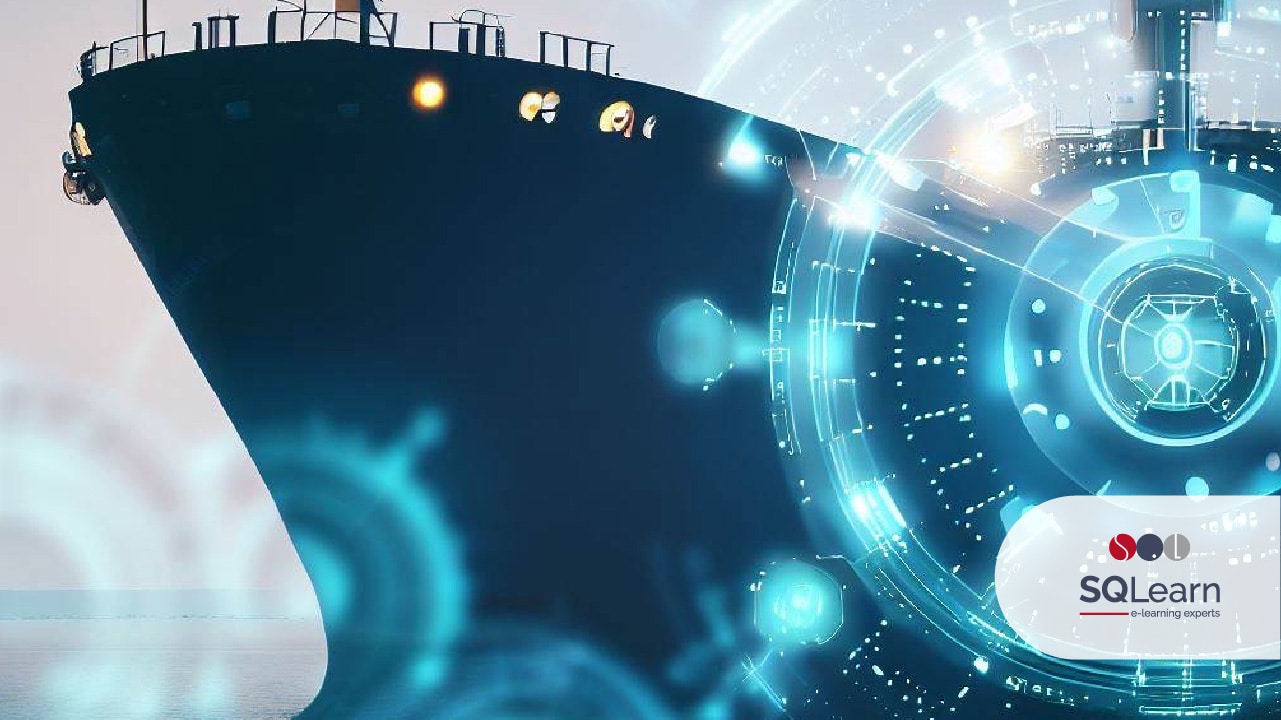AI in Maritime Operations can have various benefits from the latest advancements in Artificial Intelligence (AI) and Machine Learning (ML) technologies. According to a report by McKinsey & Company, AI-powered predictive maintenance can reduce maintenance costs by up to 10%, while improving equipment reliability and uptime. This can result in significant cost savings and improved safety.
Additionally, AI algorithms can optimize vessel routes, as demonstrated in a study by DNV GL, which found that AI-based route optimization reduced fuel consumption by up to 5% for a large tanker. This translates to lower emissions and operating costs, as well as improved efficiency. Furthermore, AI can help vessel owners optimize cargo management and reduce turnaround times, as noted in a report by the World Economic Forum. This can result in increased profitability and reduced environmental impact. With the development of autonomous vessels, as discussed in a report by the International Chamber of Shipping, ship operators can further reduce operating costs and improve safety.
Artificial Intelligence in maritime: indicative use cases and benefits
AI and ML technologies offer significant potential benefits for the maritime and shipping industry, helping to reduce costs, increase efficiency, and improve safety and sustainability with some indicative areas shown below:
- Predictive maintenance: AI can help tanker owners predict equipment failure or malfunction by analyzing data from sensors, operational logs, and other sources. By identifying potential issues before they become serious problems, owners can take preventive measures and reduce downtime, saving costs and improving safety.
- Route optimization: AI algorithms can analyze weather patterns, traffic, and other factors to optimize vessel routes. This can help reduce fuel consumption, lower emissions, and improve overall operational efficiency.
- Cargo management: AI can assist tanker owners in optimizing cargo operations by analyzing data on inventory levels, storage capacity, and demand forecasts. This can help owners optimize cargo loading and unloading processes, reducing turnaround times and increasing profitability.
- Risk management: AI can assist tanker owners in identifying and mitigating risks by analyzing data on weather patterns, vessel performance, and safety incidents. This can help owners take proactive measures to minimize risks, reducing the likelihood of accidents and incidents.
- Autonomous vessels: While still in the early stages of development, AI-powered autonomous vessels have the potential to revolutionize the maritime industry by reducing operating costs, improving safety, and increasing efficiency. Ship owners may greatly benefit from the development of autonomous vessels.
AI in maritime training
Artificial intelligence (AI) can play a significant role in enhancing maritime training for vessel operators and crew members. AI can be used to develop interactive and immersive training programs that simulate real-life scenarios, providing hands-on experience and enabling learners to gain practical skills and knowledge.
AI-powered simulators create a safe and controlled environment for trainees to learn and practice their skills, reducing the risks associated with on-board training. Additionally, AI can be used to assess learners’ performance and provide personalized feedback, allowing trainers to identify areas for improvement and adjust the training program accordingly. This can help tanker operators and crew members to better understand safety protocols, emergency response procedures, and best practices, ultimately leading to improved safety and efficiency in maritime operations.
Using AI for training needs analysis combined with a system designed for maritime training along with CBTs courses can give the best results, as the reporting data collected in the training system can be later utilized by an AI powered system to fine tune training procedures by identifying deficiencies and improving training results. Furthermore, the training needs analysis can extend to address specific requirements such as those requested by vetting inspections like OCIMF’s SIRE 2.0 or RISQ by RightShip.
AI-powered training programs can provide a cost-effective and efficient way for maritime tanker operators to enhance their training and education programs, helping to improve safety and reduce risks associated with vessel operations.
May 2023 UPDATE: You can now try CaptAIn, SQLearn’s Maritime Training AI Assistant
The Future of AI in Maritime Operations: Opportunities and Challenges
Artificial Intelligence (AI) has emerged as a revolutionary technology across various industries, and the maritime sector is no exception. The use of AI in maritime operations has the potential to improve safety, efficiency, and cost-effectiveness. However, despite its promising benefits, we are only at the beginning of realizing the full potential of AI in maritime.
The maritime industry involves complex operations, including navigation, cargo handling, and maintenance, which require specialized skills and expertise. The adoption of AI in maritime is still in its early stages. There are several challenges, including the need for large amounts of data, regulatory barriers, and the high costs of implementing and maintaining AI systems.
In conclusion, AI has the potential to transform the maritime industry by enhancing safety, efficiency, and cost-effectiveness. By analyzing large amounts of data and providing real-time insights, AI can help owners and operators make informed decisions and optimize operations. However, we are only at the beginning of this journey, and it will take time and effort to realize its full potential. By addressing the challenges and ensuring responsible use, we can unlock the benefits of AI in maritime and pave the way for a more sustainable future.
Article co-written with ChatGPT, an AI language model developed by OpenAΙ and the image was created by Bing AI.






